Author: Helen Roche
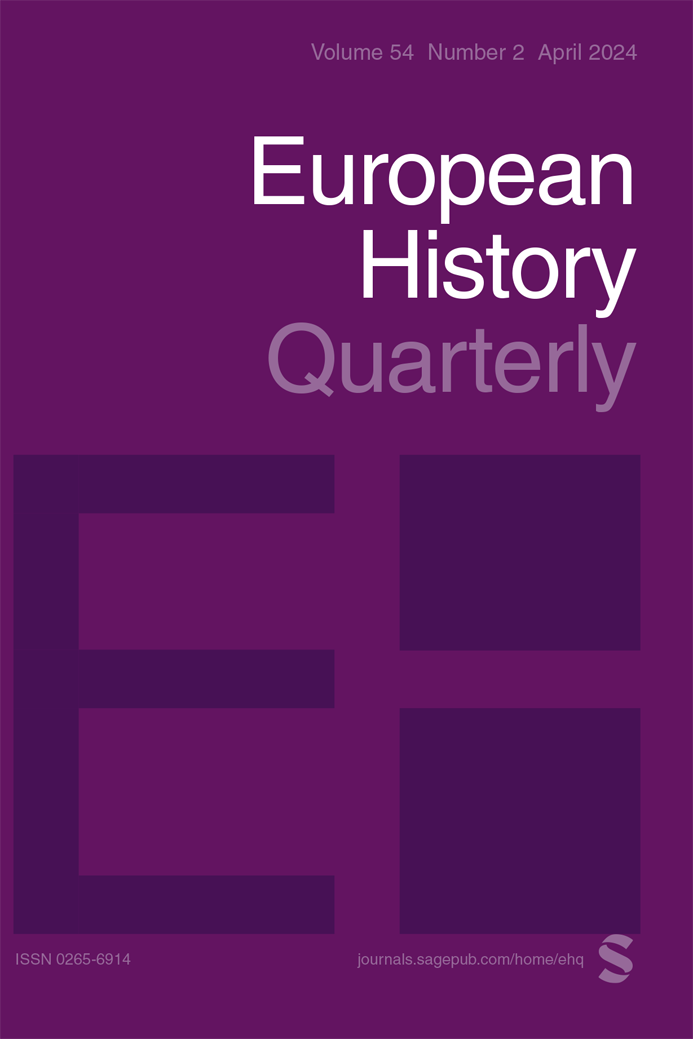 'Nazi Elite-School Pupils as Youth Ambassadors: Between Fascist Italy and the Third Reich'
'Nazi Elite-School Pupils as Youth Ambassadors: Between Fascist Italy and the Third Reich'European History Quarterly 54 (2), 2024, 258-275 (Special Issue: The Cultural Axis between Fascist Italy and Nazi Germany).
This article examines a series of trips to Fascist Italy that were undertaken by pupils of Nazi elite-schools in their role as youth ambassadors of the Third Reich. As a form of cultural diplomacy that continued during the Second World War, these trips were part of Fascist and Nazi efforts to foster a new cultural order. Although intended to strengthen ties between the two regimes, the trips also laid bare national differences.Read more...
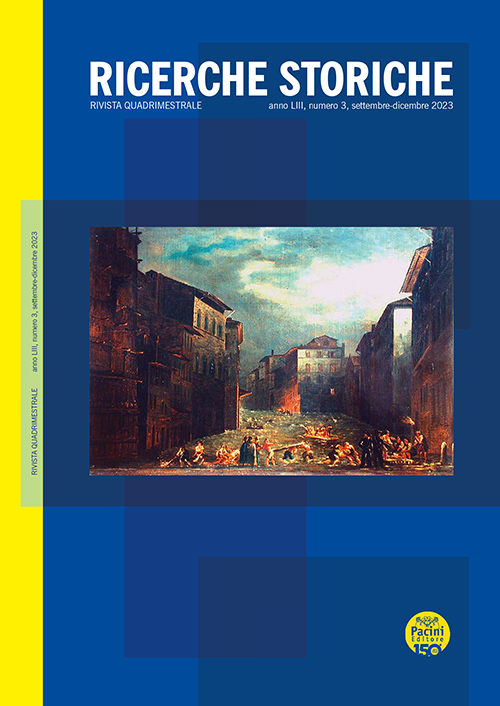 ‘Italiani Cattiva Gente? Anti-Italian Stereotypes and the Obfuscation of War Crimes in German Perpetrator Narratives from the Italian Theatre of War'
‘Italiani Cattiva Gente? Anti-Italian Stereotypes and the Obfuscation of War Crimes in German Perpetrator Narratives from the Italian Theatre of War'Ricerche Storiche LIII (3), 2023, 105-130 (co-written with Dario Pasquini).
Anti-Italian stereotypes proved central to the defence strategy of German war criminals, such as Albert Kesselring, who were tried in the early post-war period for war-crimes committed in Italy. This article identifies a number of recurring tropes which repeatedly come to the fore in accounts given by Kesselring and other German generals and officers who fought in the Mediterranean theatre, both in the testimonies given during Kesselring’s trial, and in later memoirs.Read more...
 New Publications on German Perceptions of Italy
New Publications on German Perceptions of ItalyHelen has recently published two new articles in the leading historical journals Ricerche Storiche and European History Quarterly; 'Italiani Cattiva Gente? Anti-Italian Stereotypes and the Obfuscation of War Crimes in German Perpetrator Narratives from the Italian Theatre of War' (with Dario Pasquini), and 'Nazi Elite-School Pupils as Youth Ambassadors Between Fascist Italy and the Third Reich'.Read more...
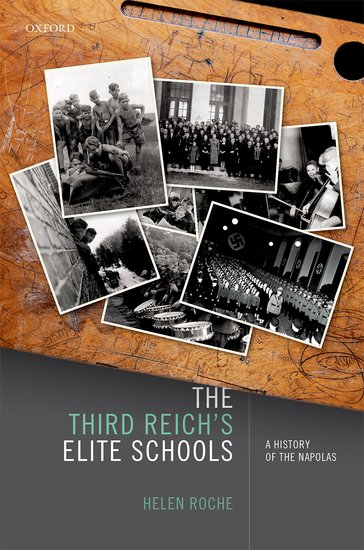 Outreach in 2021-22
Outreach in 2021-22This year saw numerous media reports and broadcasts surrounding the publication of Helen's second book, The Third Reich's Elite Schools: A History of the Napolas, in November 2021. Subsequent presentations included a guest lecture to pupils at Brentwood School and an in-person book-launch at Durham Castle. Helen's work on 'Sparta and the Nazis' was featured on The Ancients, a History Hit podcast, while her research on everyday life under Nazism was featured in four episodes of the Real Dictators podcast series on Hitler. Helen also contributed two articles entitled ‘Founding of the Napolas in Austria’ and ‘Bundeserziehungsanstalten / Staatserziehungsanstalten' to the online Encyclopedia of Contemporary Austrian History.Read more...
 Khameleon Classics Podcast
Khameleon Classics PodcastHelen recently contributed a podcast on ‘Classics in Nazi Germany’ to a series of podcasts on Classics and decolonisation hosted by Khameleon Productions.
The series, entitled ‘Interrogating Classics’, forms part of Khameleon’s commitment to exploring new narratives, platforming untold stories, and discovering fresh outlooks through interdisciplinary forms.Read more...
In 2023-2024, Helen has been appointed as a Christopherson-Knott Foundation Fellow at Durham University's Institute of Advanced Study, leading a Major Interdisciplinary Research Project as part of the Institute's programme for the academic year.Read more...
 'The Third Reich's Elite Schools' Now Out in Paperback
'The Third Reich's Elite Schools' Now Out in PaperbackHelen's monograph The Third Reich's Elite Schools: A History of the Napolas has now been released in an affordable paperback edition. To purchase a copy, you can visit the Oxford University Press website here.Read more...
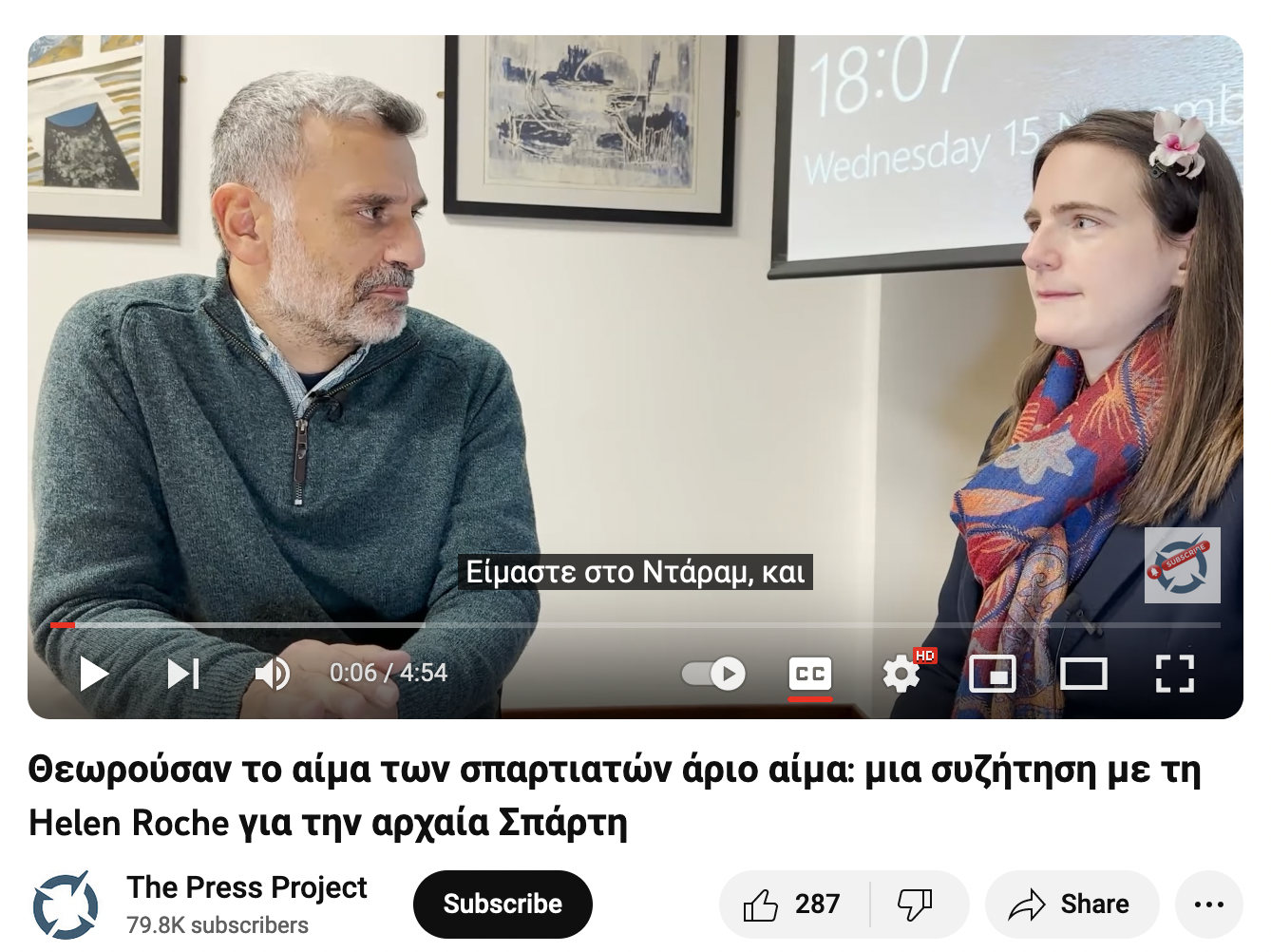 Interview with 'The Press Project'
Interview with 'The Press Project'Helen has recently been interviewed by Konstantinos Poulis of 'The Press Project', a news organisation based in Athens. You can watch the interview on YouTube here.Read more...
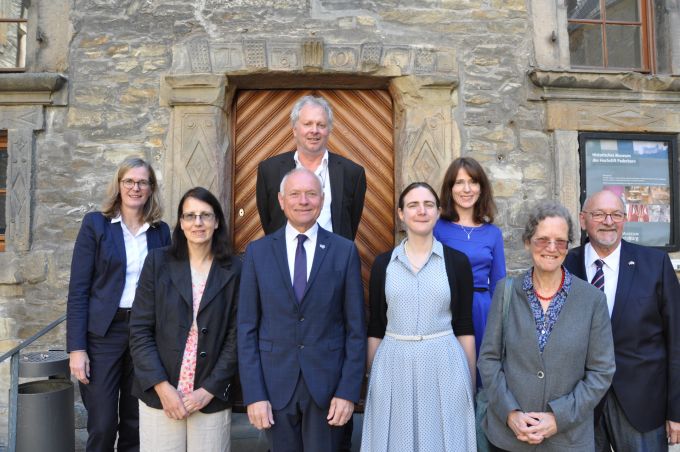 Outreach in 2019-2020
Outreach in 2019-2020During 2019-2020, the world moved from some semblance of 'normality' to a totally online world, with workshops, public lectures and seminars all being held in virtual form. Engagements with the general public during the year included contributing a lecture in German on Nazi elite-school exchange programmes with British public schools to the 11th public-facing scholarly symposium at the Wewelsburg, alongside historians Mary Fulbrook, Caroline Pearce and Helen Boak.Read more...
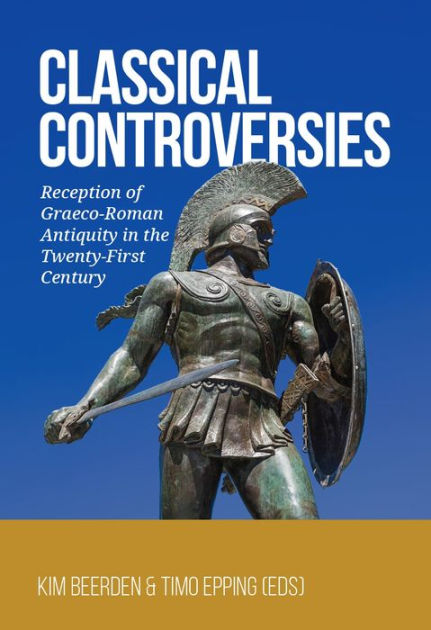 Review of 'Classical Controversies'
Review of 'Classical Controversies'Review of Kim Beerden and Timo Epping (eds) Classical Controversies: Reception of Greco-Roman Antiquity in the Twenty-First Century (Leiden: Sidestone Press, 2022), Journal of Anthropological Research 80 (1), 2024, 98-9.
Classics is often bedevilled by the need to assert its ‘relevance’ to the modern world. This timely and thought-provoking collection of essays demonstrates that the stakes of such ‘relevance’ can be all too high when the contemporary appropriations of antiquity in question often fuel extreme right-wing political agendas.Read more...
